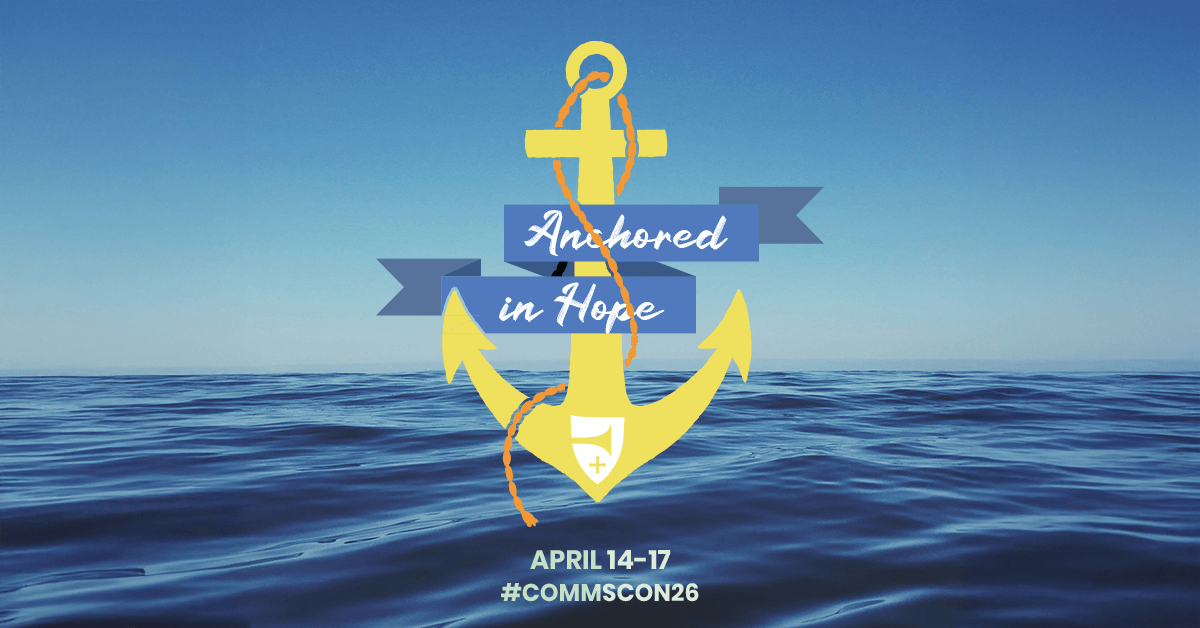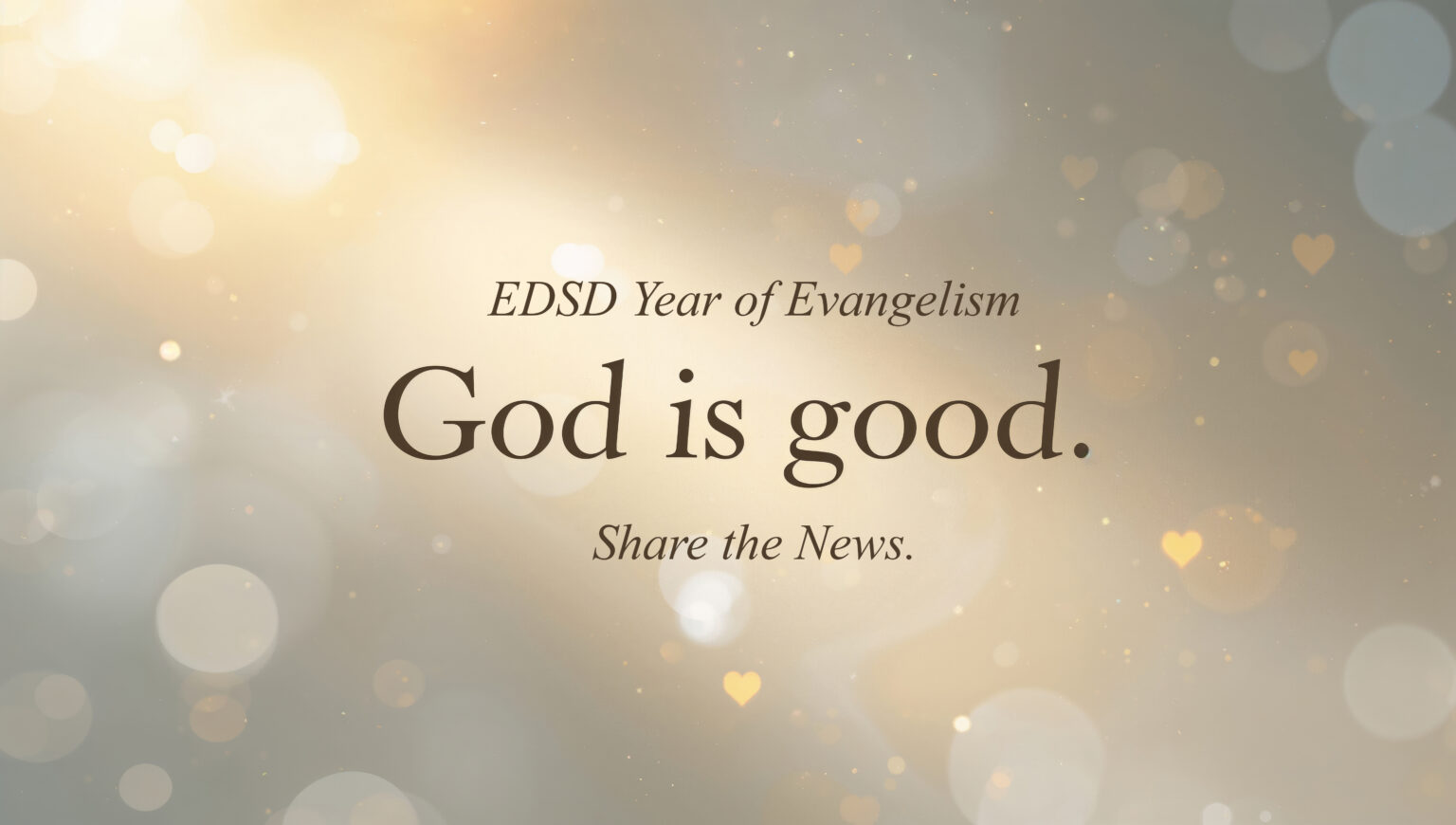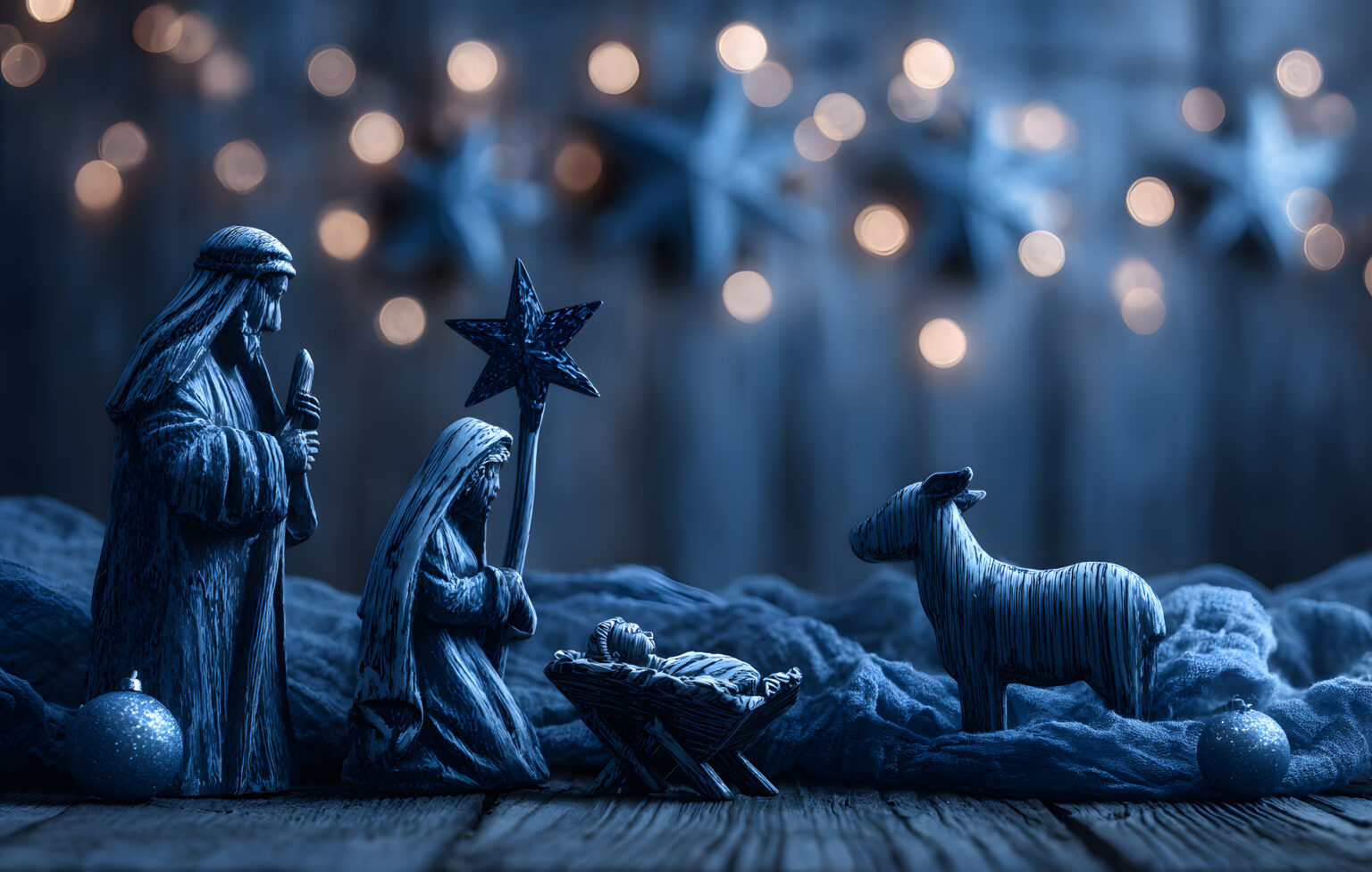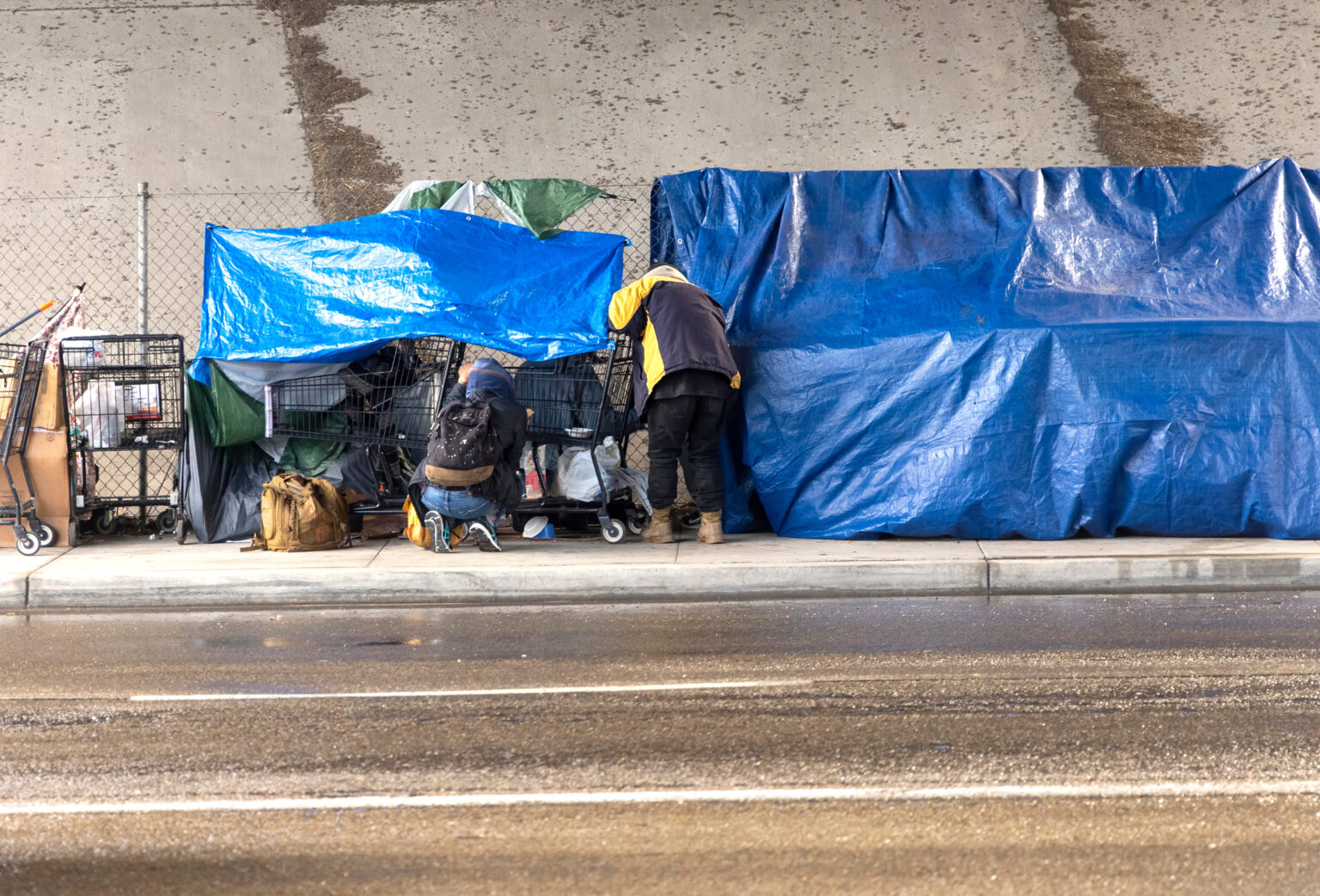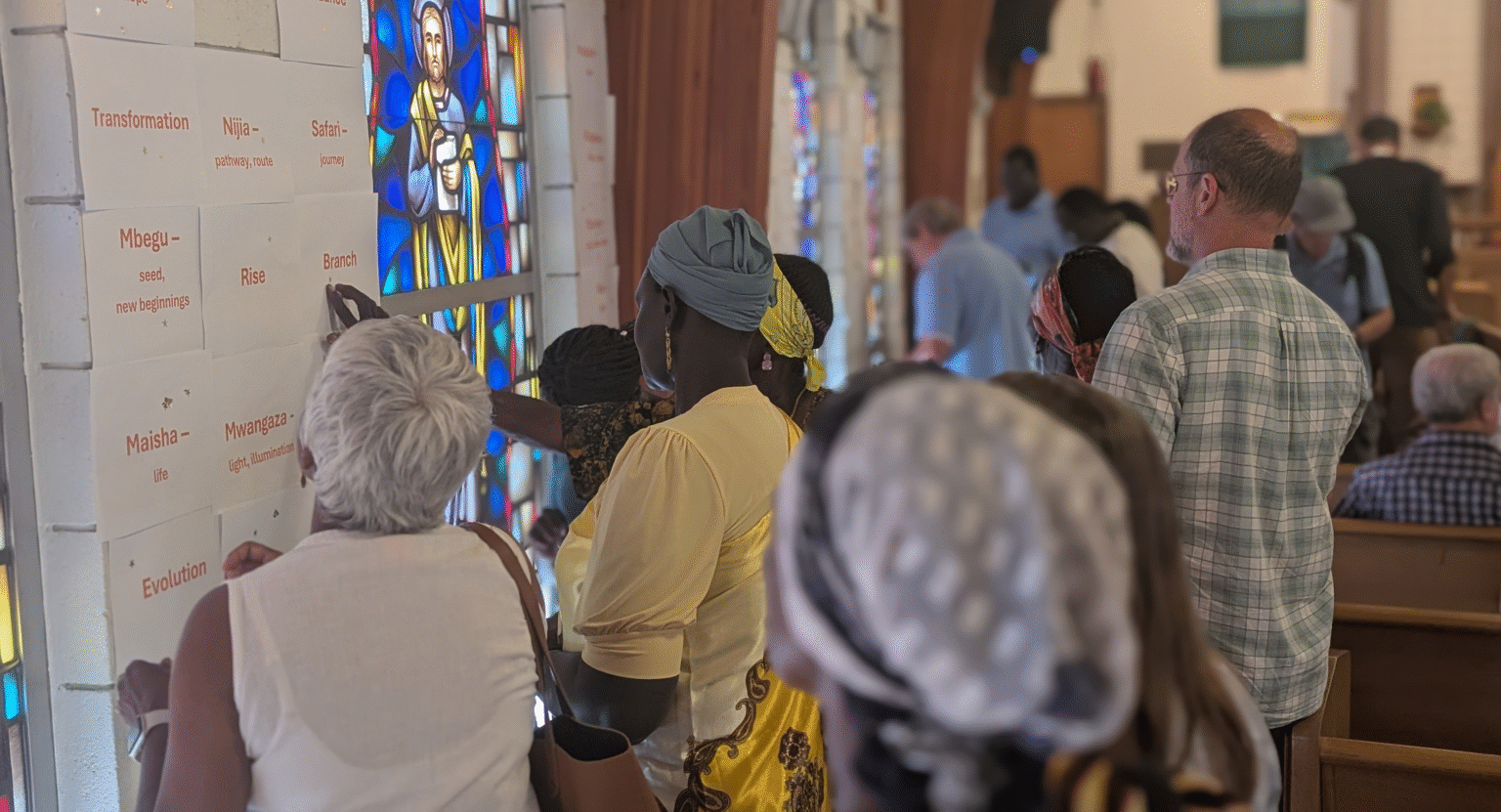Not Comfortable but Faithful
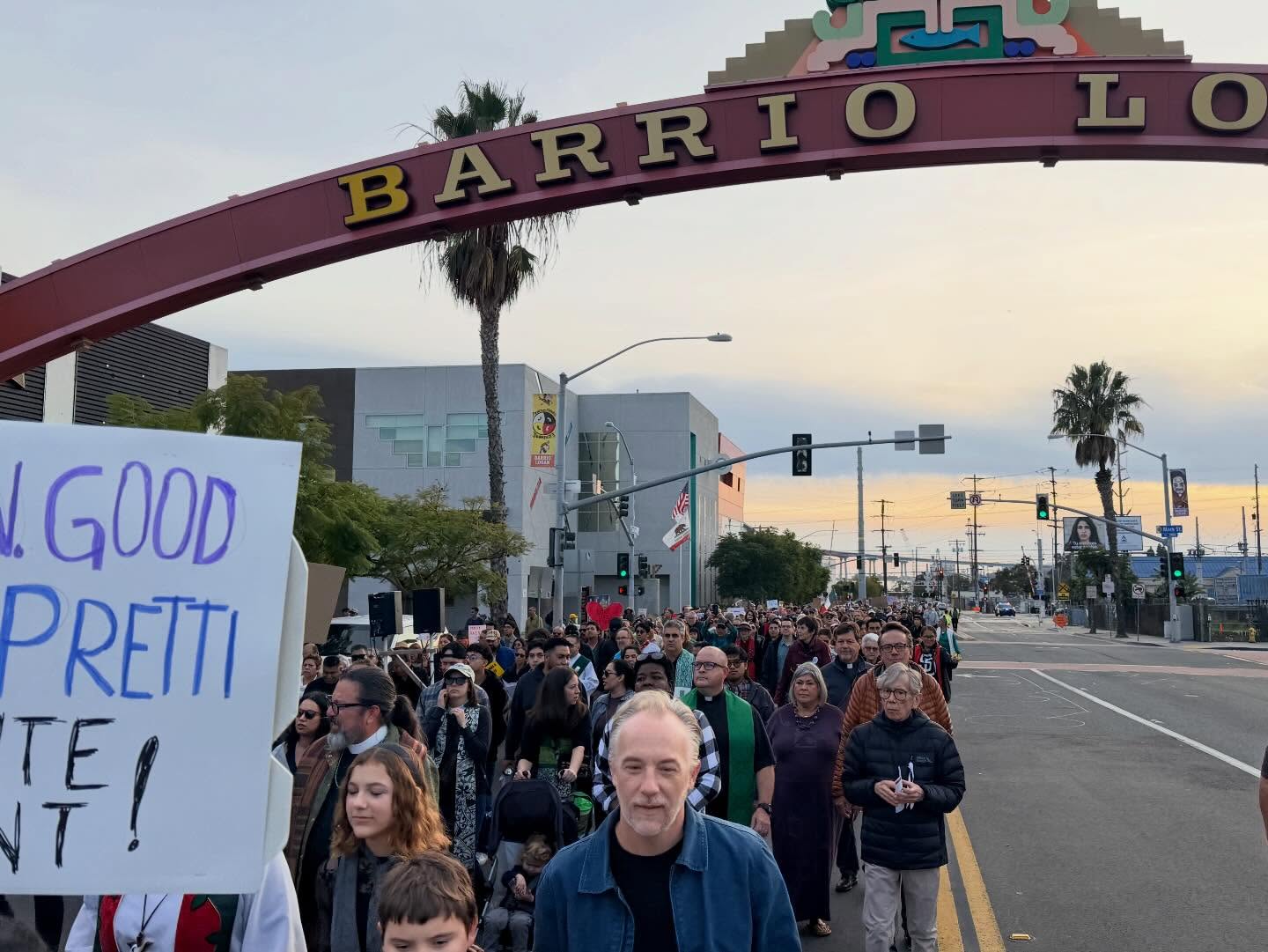
Not comfortable, but faithful–On Sunday evening at 4 pm, I stood in Cesar Chavez Park with close to 1,500 people as those words were spoken. My head was bowed, and I was listening – listening for words of inspiration and connection.
When we truly follow Jesus, we are “not comfortable, but faithful.”
If you listen to Faith to Go, you know I am a person whose primary prayer practice is taking the time to stop and notice God in each 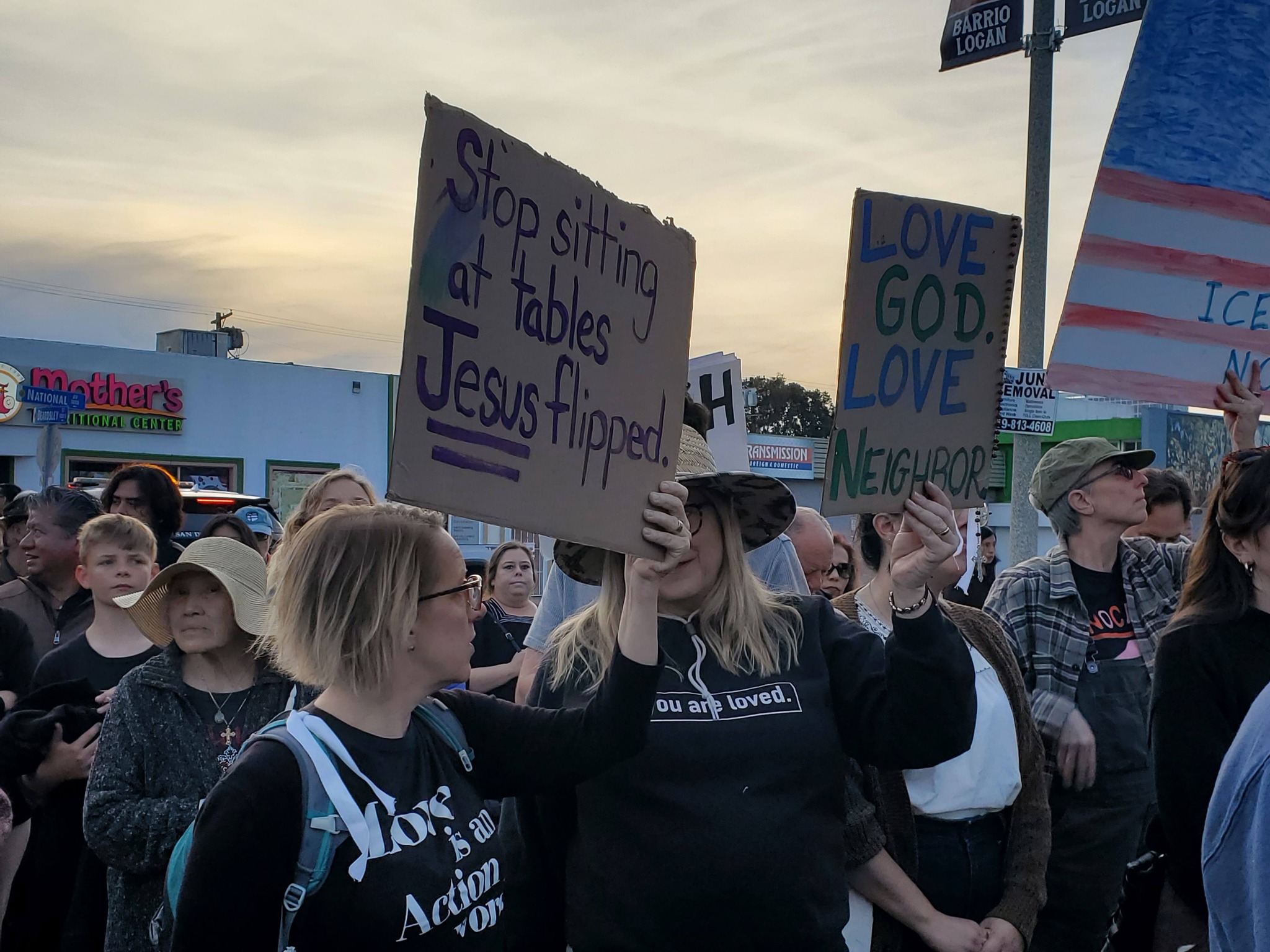 person, each moment, each day – this God sighting was electric. Over the last few months, as I have supported the communities that we serve and watched the news of the world, I have worked to moderate my own emotions. But after the escalating violence in Minnesota, including the killing of Alex Pretti on Saturday, I had spent over 24 hours deeply feeling more emotions than I thought I could hold in my body. I arrived to walk both in solidarity and searching for comfort. God, in this moment, showed up not to comfort me, but to remind me that following Jesus is never comfortable.
person, each moment, each day – this God sighting was electric. Over the last few months, as I have supported the communities that we serve and watched the news of the world, I have worked to moderate my own emotions. But after the escalating violence in Minnesota, including the killing of Alex Pretti on Saturday, I had spent over 24 hours deeply feeling more emotions than I thought I could hold in my body. I arrived to walk both in solidarity and searching for comfort. God, in this moment, showed up not to comfort me, but to remind me that following Jesus is never comfortable.
Over the next two hours, I walked with the gathered community through the streets of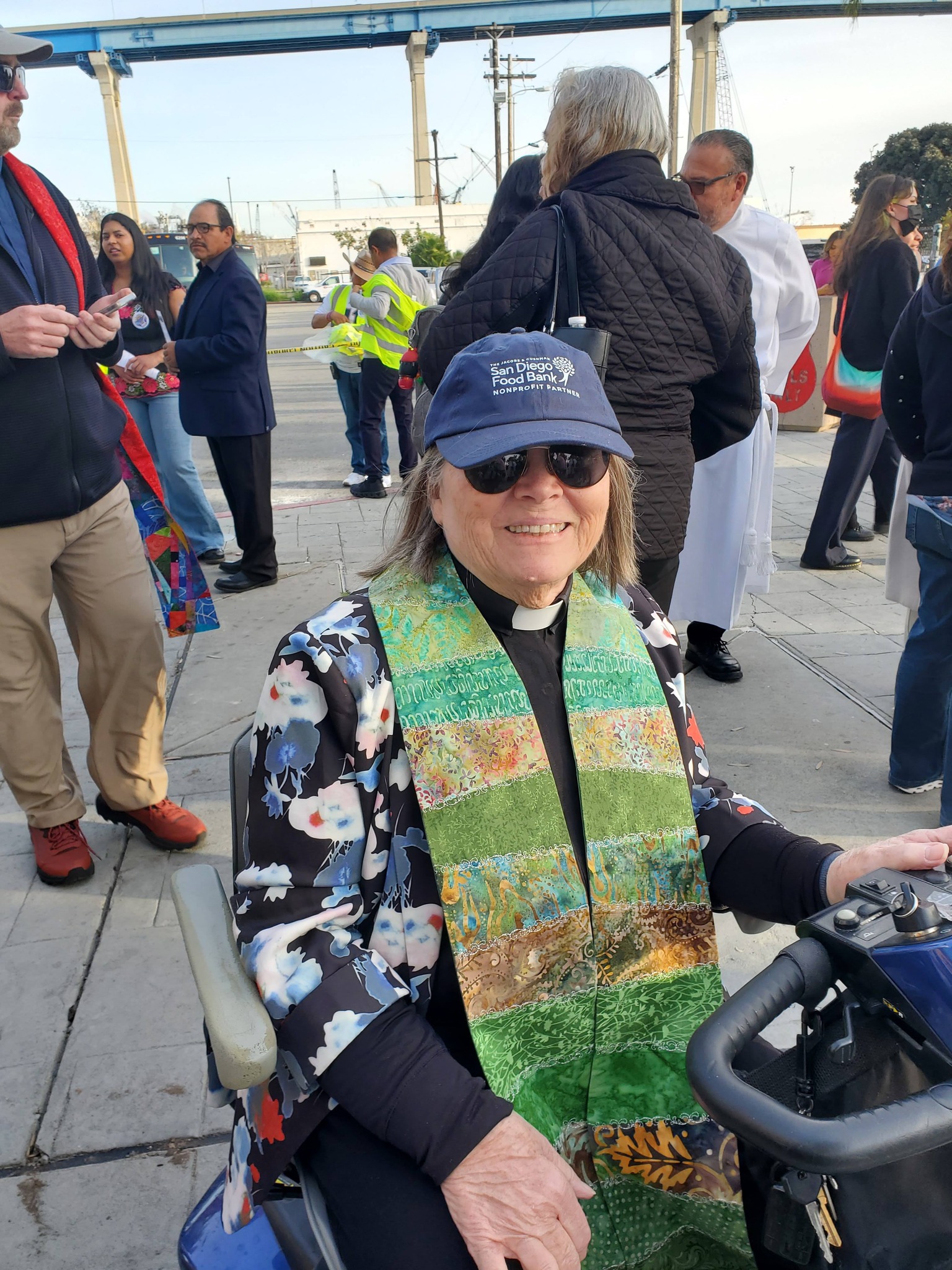 Barrio Logan. We stopped four times to mark and pray over areas where the local community had been traumatized by Immigration and Customs Enforcement. Our interfaith community included babies in strollers and in their mothers’ arms, children held by the hand or aloft on a parent’s shoulders, and preteens and teens carrying colorful signs that mirrored their hopes, worries, and frustrations. There were veterans, teachers, women carrying candles and photos of family members who had been taken, and clergy and lay leaders from many of our EDSD congregations.
Barrio Logan. We stopped four times to mark and pray over areas where the local community had been traumatized by Immigration and Customs Enforcement. Our interfaith community included babies in strollers and in their mothers’ arms, children held by the hand or aloft on a parent’s shoulders, and preteens and teens carrying colorful signs that mirrored their hopes, worries, and frustrations. There were veterans, teachers, women carrying candles and photos of family members who had been taken, and clergy and lay leaders from many of our EDSD congregations.
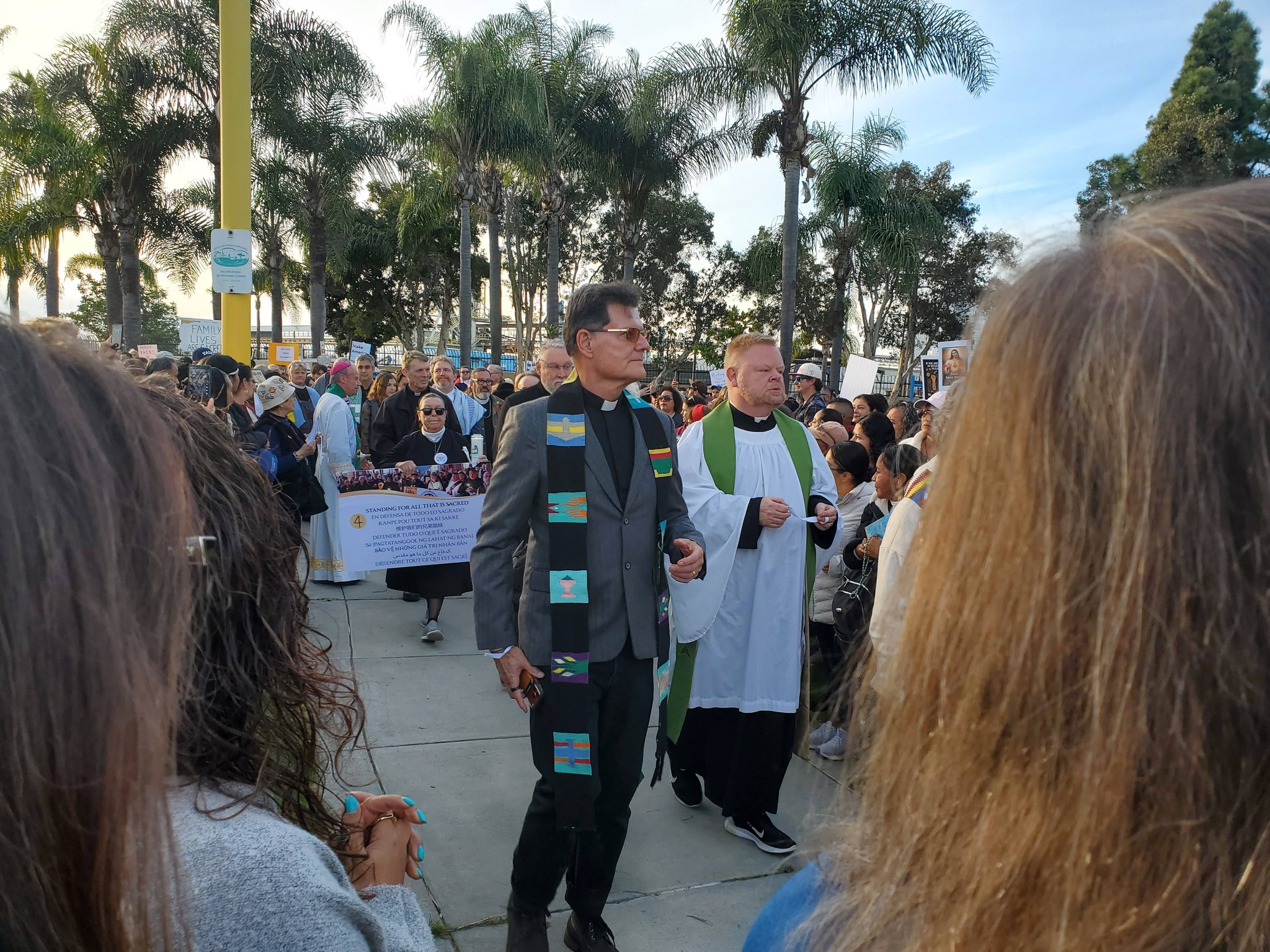 And because my words do not seem enough to capture the experience, below are a few reflections from those people I shared a moment with in the crowd.
And because my words do not seem enough to capture the experience, below are a few reflections from those people I shared a moment with in the crowd.
I felt God’s presence most deeply during the moments of absolute silence following prayers at various stops along our walk. As we stood by Perkins Elementary School, a place of recent nearby immigrant arrests, the Apostle Paul’s words: “Bear one another’s burdens, and in this way you will fulfill the law of Christ.” (Gal 6:2) came to me and became my prayer of that moment. – Thérèse Carmona, St. Mark’s Episcopal Church – City Heights
It is popular these days to talk about embodiment and “incarnational” ministries, but often these discussions are about how these practices are healing for either us or others. But walking through Barrio Logan, I was re-convinced that this is another area of “both/ and.” When we show up physically, in our bodies, to places that are being affected by practices and policies we recognize as unjust, it is good for us — and others. I felt this primarily in the strange gift it was to be convicted of the brutality of some of ICE’s recent tactics by physically standing in the places where they have taken place: outside a school, outside of Fr. Joe’s villages. I connected with the news I had been reading in a way that was memorable and strengthening. At the same time, even as I wondered if our collective gathering meant anything to anyone besides the marchers, a family gathered on their balcony shouted, “Thank you! Thank you!” Somehow, our walk was strengthening or encouraging to them, too. I want to be clear: I was not “100 percent” present. I was distracted by a two year old and tired from a day at the church. But still, a bodily presence brought gifts I could not have anticipated, for me and others. – The Reverend Laurel Mathewson, St. Luke’s Episcopal Church – North Park
I marched because I don’t like what is happening right now, and my mom asked me to go with her. There were a lot of people at the protest, so I felt better because more people can overthrow the bad stuff. – Nicky, age 12 – St. Paul’s Episcopal Cathedral – San Diego
Although this faith walk was planned and organized a few weeks ago, the timing was of God in that it took place the day after the killing of Alex Pretti. There was such a juxtaposition of the joy of seeing old friends and fellow justice seekers with the profound sadness over the tragedy that is unfolding. I came away with a sense of hope that the cumulative impact of the many who are praying, standing up and speaking out will bring peace and change. And I recognize that whatever the outcome, I needed to participate for the sake of my soul.- Julie Young – Christ Episcopal Church – Coronado
I went because I felt God’s undeniable call and clarity that prayer and witness are part of our vocation as the Church. To see so many people of all backgrounds and traditions praying and walking together for peace, justice, and mercy was a sign of hope and strength in the midst of our collective pain and grief. As a mother, stopping to pray in front of the elementary school where children and parents have suffered harm was the hardest part of the faith walk for me, but perhaps it was also the most important because this reality so clearly urges us to pray and imagine another way- the way of Jesus -who beckons the little children to himself in love. – The Reverend Rebecca Hanson – St. Dunstan’s Episcopal Church – San Diego
I have seen people gathered in support of our immigrant brothers and sisters in the news and on YouTube. But only by being part of it made me aware of the power of prayerful people in procession. I ended the evening a little weary but extremely grateful for the opportunity I was given and I expect it to deepen my awareness and my prayers in the coming weeks. – The Reverend Dr. Richard Vevia – St. Alban’s Episcopal Church – El Cajon
Sunday’s walk was a living reflection of the parable of the Good Samaritan—walking with neighbors from across San Diego to let our immigrant brothers and sisters know that they are beloved members of our community. God came in the form of people who stopped on the street, honked their horns in unity, and waved from their windows and balconies as the voices of diverse faith leaders called for compassion, mercy, and justice. – Jessica Ripper – Good Samaritan Episcopal Church – UTC
At stop four of our walk, the reflection was offered by Rabbi Michael. We were gathered outside Father Joe’s Village, a place where many migrant families had sought refuge. In his reflection, Rabbi Michael said, “-a prayer for justice is sacrilege if it is not backed up with action.”
If you, like those of us who walked on Sunday, are looking for ways to move from comfort to faithfulness, I invite you to join your diocesan community on Zoom this Thursday evening at 6:00 PM. This 30-minute call will be filled with prayer and practices to lean into our commitment to Courageous Love–to walk with the most vulnerable in immigration court, to financially support the ministries that are truly God’s hands and feet in this world, to use our words and actions advocate for change that reflects the Gospel.
To be Courageous Love in Action.


